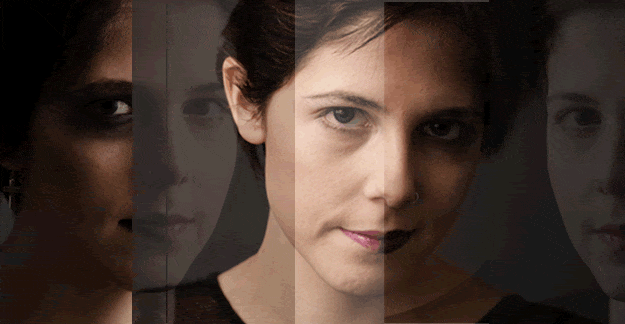Browse This Article
What is bipolar disorder?
Bipolar disorder, formerly called manic depression, is a mental disorder characterized by drastic and intense shifts in energy, mood and activity level. Individuals can be exuberant and euphoric, irritable, severely depressed or explosive. Symptoms can include racing thoughts, impulsive behavior, self-destructive behavior and suicidal behavior. The symptoms and patterns can vary between individuals but the core presentation of episodes of mood and energy changes are always there.
Are there different types of bipolar disorder?
There are three basic types of bipolar disorder.
- Bipolar 1: For a diagnosis of bipolar I, mania must be present for seven days or result in hospitalization. Most people with bipolar I also experience depressive episodes, but depression is not necessary for a person to be diagnosed with bipolar I.
- Bipolar II: Patients need to experience both depression and hypomania, a less intense form of mania.
- Cyclothymia: A milder form of bipolar disorder where people experience frequent mood swings, with hypomania and depressive symptoms lasting at least two years.
Other specified and unspecified bipolar is a diagnosis used when a person has symptoms of the illness but they do not meet the diagnostic criteria for bipolar I or bipolar II. If a person experiences frequent mood swings — four or more major episodes of depression, mania, hypomania or mixed states, all within a year — it is referred to as rapid cycling.
Is this disorder hard to diagnose?
Depression is a common condition, but it is also often the initial presenting symptom of bipolar disorder, which makes diagnosing bipolar disorder difficult. Alcoholism and substance abuse issues are common among those with the disorder and may further confuse or mask diagnosis. Periods of hypomania can easily be mistaken for high productivity and wellness. In extreme cases, a full-blown manic episode may result in delusions or psychotic symptoms and may be mistaken for schizophrenia. A person with a history of depressive episodes has a strong risk of suicide. Because of these issues, it is essential for an experienced, knowledgeable, and skillful professional to consider all of these factors carefully and to make a diagnosis based on the criteria in the Diagnostic and Statistical Manual of Mental Disorders, or DSM.
What causes bipolar disorder?
Scientists have not determined a single factor or underlying cause of bipolar disorder. Genes play a role as the disorder is passed down through the generations, but it is not known or understood why some members of a family will develop the disorder and others will not. In 2013, a genome-wide study revealed a genetic overlap (or common inherited genetic variations) between five major mental disorders: bipolar disorder, schizophrenia, depression, ADHD, and autism, with the highest overlap between bipolar disorder and schizophrenia. Experts believe that environmental factors, such as childhood abuse or recent stressful life events like divorce or unemployment, contribute to the development of bipolar disorder and are critical to why some people at risk for the disorder develop it and others do not.
How many people suffer from bipolar disorder?
Bipolar disorder affects an estimated 7 million adults, according to the National Alliance on Mental Illness. The disease affects men and women equally.
What are the medications most commonly prescribed in the treatment of bipolar disorder?
Lithobid (lithium) is a mood stabilizer with an antimanic effect that reduces the intensity and recurrence of manic and depressive episodes and decreases the risk of suicide. Side effects include nausea, headache, fatigue, acne, tremors, thyroid problems and kidney problems. Lithium toxicity can occur even when the level of lithium in the blood is in what’s considered a “therapeutic range,” so blood levels need to be monitored. Lithium can cause dehydration, so on hot days, special precautions must be taken to avoid sweating so that the concentration of lithium does not rise to a lethal level. Lithium should not be used by pregnant women or women who may become pregnant as it may cause birth defects.
Depakote (valproic acid) is a mood stabilizer and anticonvulsant that helps prevent and reduce mania and frequency of cycles. Side effects include weight gain, fatigue, skin rash, hair loss,and damage to the liver, heart, pancreas and kidneys. Depakote is not advised for women of child-bearing age who may want to become pregnant as it may cause birth defects during pregnancy. It may also increase the risk of polycystic ovary syndrome.
Other mood stabilizers used to treat bipolar disorder include Equetro (carbamazepine) and Lamictal (lamotrigine). These come with a side effect profile similar to the others, with the addition of the risk of a potentially lethal rash.
Atypical antipsychotics reduce mania and psychotic symptoms and improve quality of life in people with bipolar disorder. Side effects include weight gain, sleepiness, sluggishness, increased risk of developing type 2 diabetes, cardiac risk factors and decreased sex drive. Atypical antipsychotics used to reduce bipolar symptoms include Zyprexa (olanzapine), Risperdal (risperidone), Seroquel (quetiapine), Abilify (aripiprazole), Geodon (ziprasidone), Latuda (lurasidone), Vraylar (cariprazine), Saphris (asenapine) and Symbyax (combined fluoxetine and olanzapine).
Research shows that people with bipolar disorder may do better if they supplement their drug treatment with psychotherapy. In a 2020 analysis published in JAMA Psychiatry, researchers reviewed 39 studies that compared usual drug treatment to drugs plus different types of psychotherapy, such as family therapy, interpersonal therapy, or cognitive behavioral therapy. The researchers concluded that when drug treatment is supplemented with certain types of psychotherapy, people with bipolar disorder have lower rates of recurrence. Also, people participating in group or family therapy were more likely to stick with their treatment regimens over a year’s time than when given individual psychotherapy.
Pregnancy and bipolar medicine
Experts believe that continuing medication for bipolar disorder during pregnancy is crucial to prevent relapse of symptoms and reduce the risk of postpartum depression, which is five times more likely to occur in women with bipolar disorder than in women who don’t have the disorder.
Over a 10-year period, researchers at Harvard Medical School examined the risk of heart defects in infants born to women who had been treated with lithium during the first trimester of their pregnancy. Lithium exposure increased the infants’ heart risks by about one additional case per 100 live births, with the degree of risk dependent on the dosage of the drug the woman was given. However, lithium remains a first-line treatment for women of childbearing age due in part to its effectiveness, and in part because other mood stabilizers, such valproic acid and carbamazepine, are associated with major fetal deformities. Experts conclude that drugs should be prescribed to pregnant women only when the risk of severe, untreated maternal bipolar disorder outweighs the potential risk of drug exposure to the fetus.
Considering that the average age of onset of bipolar disorder is about 25, most women suffer during childbearing years, and it’s concerning that so little is known about the effects of the various drugs on the mother and fetus during and after pregnancy.
Is there a cure for bipolar disorder?
Bipolar disorder is a lifelong condition. With the proper treatment and long-term care, people with bipolar disorder can lead full and productive lives. The support of family and friends is invaluable in helping the individual monitor and recognize moods before they develop into full-blown episodes.
— Suelain Moy







